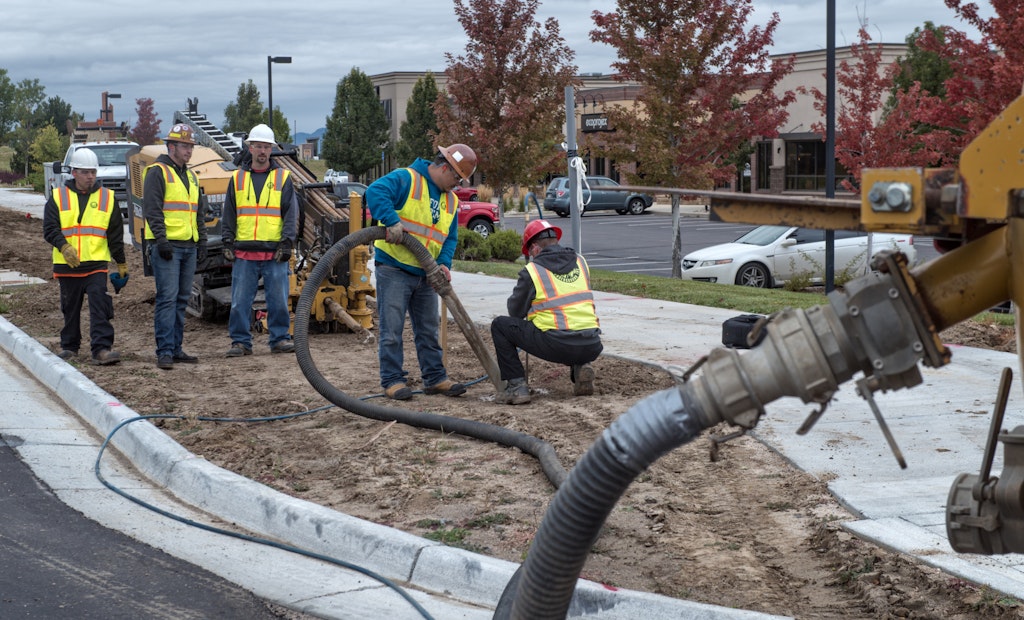
“The key to our success, first and foremost, is the people with the boots on the ground, doing the actual work,” says Mark Allen, general manager of Diversified Underground of Aurora, Colorado.
Interested in Education/Training?
Get Education/Training articles, news and videos right in your inbox! Sign up now.
Education/Training + Get AlertsCreating a workplace culture that attracts the brightest and best talent is no small task. To accomplish and sustain this, Maryland-based Pleasants Construction, featured in the November 2020 issue, draws heavily upon one of its core values: investing in its employees.
Recognizing that engaging and empowering a team to learn, grow and prosper creates a workplace that naturally retains star employees, the company established the Pleasants Learning Academy, an extensive, dynamic training program that provides skills training and courses from onboarding all the way through executive leadership. Topics include decision-making, negotiating skills, managing a company, developing a handbook, performing reviews, interviewing, recruitment and an increasing number of best practices courses that cover the broad range of needs for all of the company’s various business units and divisions. At present, there are almost 200 training modules available.
“We realized that if we want a quality workforce, we have to invest in them by training them,” says Eric Newquist, executive vice president of Pleasants. “We as business owners can’t complain that we can’t find or attract quality people or that they are not able to do something for lack of know-how. This investment has reaped great rewards and has been an incredibly positive addition to our organization, and I believe it will continue to bear a strong return on investment generationally.”
Diversified Underground of Aurora, Colorado, also believes strongly in properly investing in its employees.
“The key to our success, first and foremost, is the people with the boots on the ground, doing the actual work,” says Mark Allen, general manager of the company.
Diversified Underground’s formula: Don’t be afraid to hire people with less experience. Pay for employee-development efforts, such as earning a commercial driver’s license. And promote from within whenever possible — make them feel like they have a career, not only a job.
“If we have employees that we know want to stick around, we try to give them opportunities to move up and go in a direction they want to go. It’s the difference between having a career and having a job where you work for three months, then move on,” Allen says.
That mindset is especially helpful in attracting younger employees, such as high school graduates who know they aren’t cut out for college.
“They come in here and see opportunities for growth,” Allen says. “They appreciate it when we invest some time and money in them — give them training that teaches them how to work safely and proficiently and let them feel the sense of family we’ve developed here. When they take that next step, they have a lot of pride not only in the business, but also in themselves. They’re thinking, ‘That was me carrying a hose, and now I’m out talking to clients.’ That makes them more productive and happy employees. When they see a guy they used to work with become their boss, for example, it gives them a reason to buy into the business. They know there’s somewhere for them to go.”
A clear, well-defined path to career advancement and higher pay is a key factor at Southern Hydro Vac, based in Powder Springs, Georgia, as well. Employees can aim for nearly 20 different levels of certification and get corresponding pay raises every time they take another step up the certification ladder.
“It offers a transparent path for employees to move up in the company,” says Guy Rimoldi, president of the company. “They’re tested every step of the way. We have four dedicated trainers who go out on the trucks and train guys as they come through the ranks. Their titles change and pay increases every time they get a different certification.”
The training program helps employees more easily adopt the company’s operating and business philosophies. It also boosts company loyalty because employees appreciate that the company is investing in their future.
“As employees move ahead and make more money, they buy into the program,” Rimoldi says. “They become experts in their field, which makes them more valuable. And at some point, if they’re aggressive enough and stay with the company, they can become trainers.”
“Companies that fail to invest in new technologies and equipment, as well as their people, eventually get left behind,” says Chris Biellier of Seneca Waste Solutions, based in Des Moines, Iowa. “We have a desire to grow, and in order to grow, we have to be willing to invest in new technologies and people. You can’t have just one or the other — it has to be both.”
About 10 years ago, Seneca Waste Solutions took a hard look at the causes of employee turnover, and the information gleaned from that study inform many of the current employee-management philosophies and practices. For example, the company now rotates the crews who are on call during weekends and holidays, since schedule unpredictability was revealed as a sore point. And it compensates those on-call employees whether they’re called in to work or not.
“Every company has turnover, but we have less than we did 10 years ago,” Biellier says. “We learned how to run our business by being observant of the conditions under which our employees work. Sometimes pay is the issue. For others, it’s available free time, modern equipment and how managers talk to people and engage them.”





